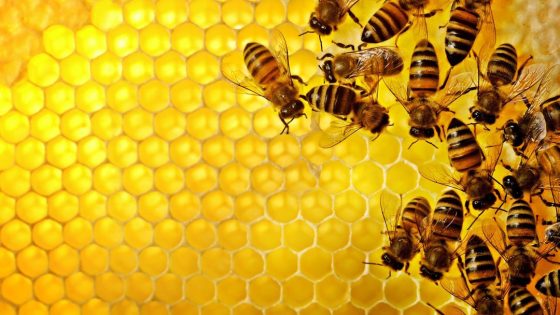A commercial truck carrying 250 million honeybees overturned in northwestern Washington state early Friday morning, creating a buzz in the local community. The incident occurred around 4 a.m. near Lynden, close to the Canadian border, when the driver misjudged a turn, causing the trailer to roll into a ditch. Fortunately, the driver emerged uninjured, but the situation quickly escalated as deputies had to seek refuge from the agitated swarm.
- Truck carrying 250 million bees overturned.
- Driver uninjured in the accident.
- Deputies sought refuge from bee swarm.
- Beekeepers attempted to wrangle escaped bees.
- Emergency response plans are necessary.
- Bees are resilient but agitated post-accident.
The truck, registered to an Illinois-based cargo company, was transporting around 70,000 pounds of honeybee hives. It’s not uncommon for beekeepers to relocate bees to prevent resource depletion for other pollinators. However, the sheer number of bees escaping posed a significant challenge for local authorities and beekeepers alike.
More than two dozen beekeepers rushed to the scene to help corral the bees. Although they plan to cordon off the area for a few days to allow the bees to return to their hives, experts like Alan Woods from the Washington State Beekeepers Association express skepticism about this strategy. What happens when the bees get active? Will they find their way back?
This incident raises important questions about emergency protocols for transporting bees. Should companies have a specific plan for such accidents? Consider the following:
- Beekeepers emphasize the need for quick action to recover escaped bees.
- Experts suggest that bees are resilient but can become aggressive.
- Local authorities are urging the public to avoid the area until the situation stabilizes.
As the situation unfolds, it serves as a reminder of the vital role bees play in our ecosystem. Local authorities and beekeepers are working diligently to mitigate the impact of this incident, but it also raises awareness about the importance of proper transport protocols for such essential creatures.

































